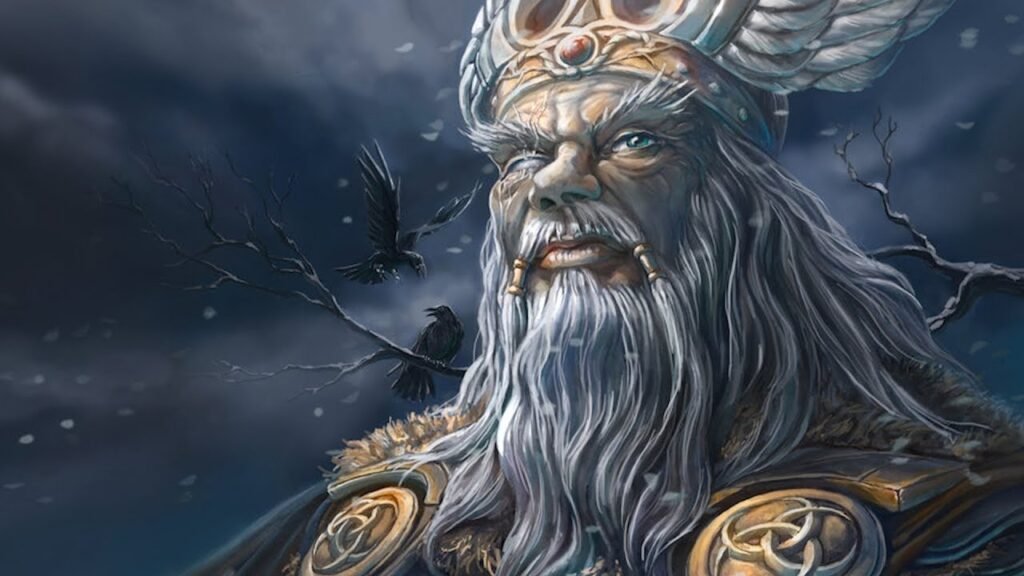
In Norse mythology, Odin is a revered god associated with numerous aspects of life, including wisdom, war, poetry, and royalty. He plays a significant role in the history and folklore of Northern Europe, and his influence can still be seen in modern times. This article will delve into the legend of Odin, exploring his various domains and the impact he has had on Norse culture.
Odin: The All-Father of Norse Mythology
Odin, also known as Wōden, Uuôden, Wuodan, Wêda, and Wuotan, is a prominent figure in Germanic paganism and Norse mythology. He is often depicted as a wise and powerful deity, associated with various domains such as healing, death, battle, victory, poetry, and sorcery. Odin is the husband of the goddess Frigg and is considered a central figure in Norse cosmology and creation myths.
Origins and Depictions of Odin
The origins of Odin can be traced back to Germanic mythology, where he was known by different names and held similar roles. He is often portrayed as a one-eyed and long-bearded god, wielding the spear Gungnir. Odin is accompanied by his animal familiars, the wolves Geri and Freki, and the ravens Huginn and Muninn. He also rides the eight-legged steed Sleipnir.
Odin’s Domains and Associations
Wisdom and Knowledge
Odin is revered as the god of wisdom and knowledge, often depicted as a seeker of greater understanding. He is associated with the acquisition of knowledge through various means and is known for obtaining the Mead of Poetry. Odin is believed to provide inspiration and guidance to poets, scholars, and those seeking wisdom.
War and Victory
Odin is a war deity who presides over battles and oversees the warriors who die in combat. He is the overseer of Valhalla, the hall of the slain, where fallen warriors are brought after death. Odin is often depicted as a patron of warriors and is associated with divine battlefield maidens called valkyries.
Poetry and Art
Odin’s connection to poetry is well-documented in Norse mythology. He is believed to have bestowed the gift of poetry upon humans, known as the Mead of Poetry. Odin’s poetic associations have inspired various works of poetry, music, and art throughout history.
Odin in Mythology and Folklore
Creation and the First Humans
Odin plays a significant role in the creation of the world and the first humans in Norse mythology. He is associated with the creation of the cosmos and the shaping of human destiny.
Influence in Norse Culture and Folklore
Odin’s influence extends beyond mythology and has left a lasting impact on Norse cultures and folklore. He is often referenced in rural folklore, place names, and even daily language, with the term “Wednesday” deriving from Old English Wōdnesdæg, meaning ‘day of Wōden’.
Odin and his Equivalences
Odin is often equated with the Roman god Mercury, as both deities share similar domains and characteristics. This equating reveals the cultural exchanges and connections between different mythologies.
Legacy and Cultural Significance
Odin’s legacy can be seen throughout history in various forms of art, music, poetry, and literature inspired by his mythology. He holds a particular place as an ancestral figure among royalty and is referenced in ancient texts such as the Old English rune poem and old Norse works.